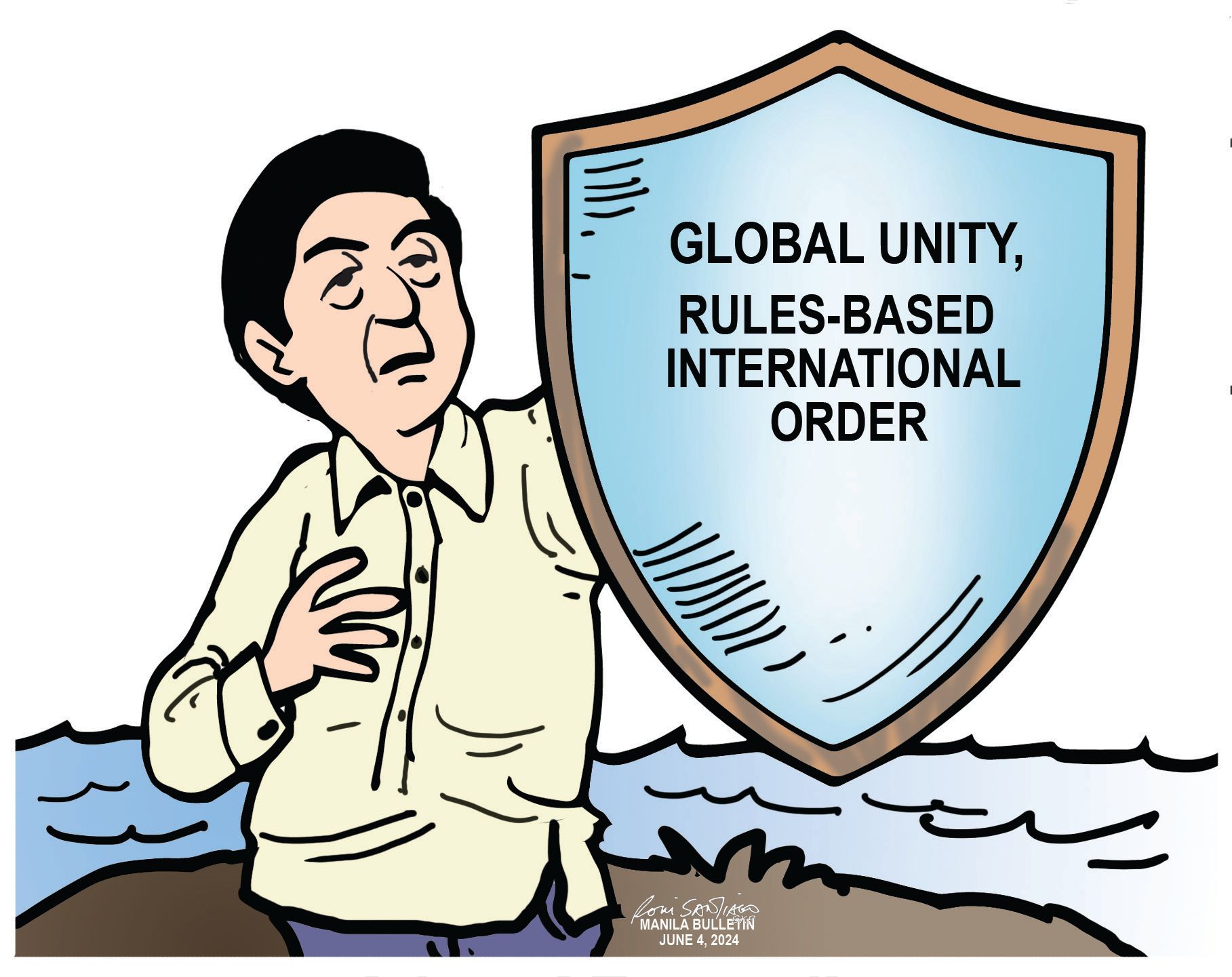Marcos affirms PH role: A force for global unity, rules-based international order

Delivering the keynote speech at the International Institute for Strategic Studies’ Shangri-la Dialogue in Singapore, President Marcos declared: "We are determined to be a force for the good, a force for peace, a champion of regional and global unity, (and) a staunch defender of the rules-based international order."
He traced the evolution of the archipelagic doctrine defining the metes and bounds of Philippine territory --- from the Treaty of Paris between Spain and the United States to the Treaty of Washington --- that led to the framing of the United Nations Convention of the Law of the Sea (UNCLOS) which upholds the principle that “regards all archipelagic states as a single unit, with the waters around, between, and connecting their islands, irrespective of their breadth and dimensions, forming part of their internal waters.”
Emphasizing that “the lines that we draw on our waters are not derived from just our imagination, but from international law,” he cited, too, the 2016 decision of the Permanent Court of Arbitration in The Hague. Then he was applauded after he declared: “The life-giving waters of the West Philippine Sea flow in the blood of every Filipino. We cannot allow anyone to detach it from the totality of the maritime domain that renders our nation whole.”
After assessing the Indo-Pacific situation, he called for a reaffirmation of “three constants,” namely: “the sovereign equality of states must remain sacrosanct; ASEAN and ASEAN-led processes must remain central; and the rule of law and the integrity of multilateralism must prevail.”
Yet, as he pointed out, realpolitik cannot be ignored. The United States’ “stabilizing presence is crucial to regional peace,” especially in view of “China’s determining influence over the security situation and the economic evolution of this region.” Hence, he called on both superpowers to act responsibly, just as he stressed that with “our strategic partners Australia and Japan, the Philippines has been seeking to bring Indo-Pacific issues to the fore.”
He then beamed the spotlight on broader regional concerns: “(T)he economic security of East Asia depends upon the freedom of navigation and unimpeded passage in the South China Sea and in the East China Sea, and the stability of the Korean Peninsula and the Taiwan Strait.”
Recalling the “long history of fraternal bonds with the people on both sides of the Taiwan Strait,” he called on restraint to ensure continuing peace and stability. In a similar vein, he joined the call for lasting peace in the Korean Peninsula.
Echoing ASEAN’s vision of the South China Sea as “a sea of peace, stability, and prosperity,” he deplored: “Unfortunately, this vision remains for now a distant reality. Illegal, coercive, aggressive, and deceptive actions continue to violate our sovereignty, sovereign rights, and jurisdictions.”
Rounding out the first trimester of his tenure, President Marcos’ keynote speech at the Shangri-la Dialogue marks his emergence as a leading exponent of ASEAN centrality that is key to ensuring long-term regional peace and stability. He concluded by pointing out: “Despite daunting challenges and our increasing vulnerabilities, we remain on track to achieve our goal of a high-income economy and a prosperous country by the year 2040, a place where Filipinos live strongly-rooted, comfortable, and secure lives.”